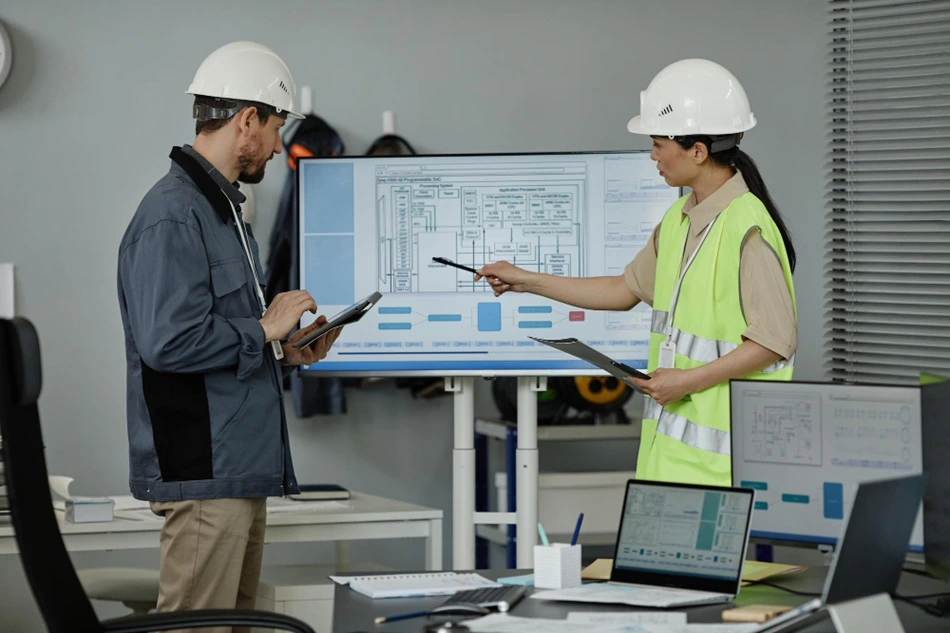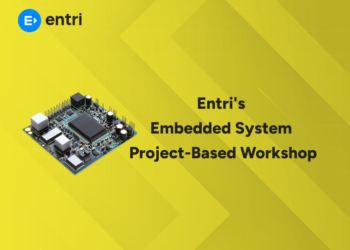Table of Contents
Introduction
MEP engineering, which includes Mechanical, Electrical, and Plumbing systems, is a vital part of modern building design and construction. MEP engineers design, install, and maintain systems to make buildings safe, functional and energy efficient.
As the industry evolves, the role of MEP engineers requires not only technical knowledge but also practical problem-solving, communication, and project management skills. Whether you are an engineering graduate looking to start your first MEP job or a professional looking to advance your career, knowing the key skills for MEP engineers is crucial.
This blog will give you a detailed overview of the technical, professional, and soft skills required to be an MEP engineer. We will also see how the Entri MEP Course can help you develop these skills and prepare you for real-world challenges in MEP projects.
Skills Required For MEP Engineer
What is a MEP Engineer?
MEP Engineers are professionals who work on the Mechanical, Electrical, and Plumbing aspects of a building. They design, install, and ensure the proper working of these systems. They also make sure that they are energy efficient, meet the safety standards, and provide comfort for the people using them.
Who can become a MEP Engineer?
Any one with an engineering background in the Mechanical, Electrical, and Plumbing fields can become a MEP Engineer. Along with the engineering degree, they may require may require additional certification and training specific to MEP systems.
How to become a MEP Engineer?
Get a Degree:
- Study mechanical or electrical engineering.
- Look for programs focusing on MEP engineering.
Get Experience:
- Work in internships or entry-level positions.
- Learn how MEP principles are used in real projects.
Specialize:
- Study MEP certification programs
- Take extra courses in HVAC, electrical systems, etc.
Get Licensed:
- Pass exams and gain experience for professional licensure.
Keep Learning:
- Stay updated on industry trends and codes.
- Attend workshops or get advanced certifications.
Master MEP Design with Industry-Leading Training!
Gain in-depth knowledge of Mechanical, Electrical, and Plumbing (MEP) Design with expert-led courses. Learn HVAC, fire safety, sustainable building strategies, and BIM applications to excel in the construction industry.
Know MoreSkills required to become a MEP Engineer:
Technical Skills:
- Know how to use CAD software.
- Understand mechanical, electrical, and plumbing systems.
Problem-Solving Skills:
- Solve issues with MEP systems.
- Figure out complex problems.
Communication Skills:
- Talk clearly with team members and clients.
- Write reports and documents well.
Project Management Skills:
- Manage projects and budgets.
- Work with different people to finish tasks on time.
Attention to Detail:
- Be careful with plans and designs.
- Make sure everything follows the rules.
Teamwork and Collaboration:
- Work well with others.
- Be ready to change plans and work in a team.
Continuous Learning:
- Keep learning about new technology and rules.
- Take training courses and get certifications.
Get Career oriented MEP training with Expert Mentors! Get Free Demo Here!
Roles and Responsibilities
Here are the main roles and responsibilities of an MEP Engineer:
Designing Systems:
- Create plans for mechanical, electrical, and plumbing systems.
- Use computer software to draw designs.
Installation Oversight:
- Supervise the setup of HVAC, electrical, and plumbing systems.
- Make sure everything follows building rules.
Testing and Fixing:
- Test MEP systems to ensure they work right.
- Fix any problems and make sure they run well.
Problem Solving:
- Solve issues with MEP systems quickly.
- Handle emergencies and repair breakdowns.
Collaboration:
- Work with architects and contractors to fit MEP systems into building designs.
- Coordinate with project managers to meet goals.
Quality Check:
- Make sure installations meet quality and safety standards.
- Keep records of work and inspections.
Learning and Improvement:
- Stay updated on new industry trends and rules.
- Attend training sessions to improve skills.
Client Communication:
- Talk to clients to understand what they need.
- Give advice and solutions to meet their requirements.
Sustainability:
- Design systems that save energy and are eco-friendly.
- Make sure systems are efficient and reduce waste.
Scope of MEP Engineers
Diverse Projects:
- They work on different buildings like homes, offices, hospitals, and factories.
Demand in Construction:
- Because construction keeps growing, there are always jobs for MEP Engineers.
Technological Advancements:
- They need to learn new tech stuff as things change.
Global Opportunities:
- MEP Engineers can find work around the world, especially where cities are growing fast.
Green Building Trend:
- There’s more work in making buildings eco-friendly, which means more jobs for MEP Engineers.
Career Growth:
- They can move up in their jobs or focus on specific areas like renewable energy or smart buildings.
Consultancy and Entrepreneurship:
- After gaining experience, they can start their own companies.
Long-Term Stability:
- Because construction never stops, MEP Engineers always have work.
Master MEP Design with Industry-Leading Training!
Gain in-depth knowledge of Mechanical, Electrical, and Plumbing (MEP) Design with expert-led courses. Learn HVAC, fire safety, sustainable building strategies, and BIM applications to excel in the construction industry.
Know MoreChallenges MEP Engineers Face & How Skills Help Overcome Them
Knowing the difficulties ahead can help you prepare better.
| Challenge | How the Skills Help |
|---|---|
| Clashes in design (e.g. duct collides with beam, plumbing conflicts) | Good BIM/coordination skills + attention to detail help avoid or resolve these. |
| On-site unforeseen issues (space constraints, supplier lead time, regulatory delays) | Problem-solving + adaptability + good communication with clients & contractors mitigate these. |
| Cost overruns | Strong project management + budgeting + accurate estimation reduce surprises. |
| Changing regulations/codes | Continuous learning and keeping updated with codes, standards helps maintain compliance and avoid legal or safety issues. |
| Sustainability demands | Technical ability in energy efficiency, understanding green certification, simulation tools helps deliver buildings that meet modern expectations. |
How Entri MEP Course Helps
The Entri MEP Course gives professionals and engineering graduates the skills to succeed in modern MEP projects:
- Technical Mastery: HVAC, electrical, plumbing systems.
- Software Proficiency: AutoCAD MEP, Revit MEP, HAP, ETAP.
- Project Management Skills: Scheduling, budgeting, team coordination.
- Practical Exposure: Case studies, simulations, real-world project scenarios.
- Career Advantage: Boosts confidence and prepares engineers for interviews and project challenges.
By taking this course, engineers can bridge the gap between theory and practice, become job ready for MEP roles.
Key Takeaways
- MEP engineers need technical, managerial and soft skills to succeed.
- Core technical knowledge is HVAC, electrical, plumbing, fire safety, standards compliance.
- Software skills in AutoCAD MEP, Revit MEP, HAP, ETAP for design and coordination.
- Project management, communication and problem solving skills for timely and safe project completion.
- Continuous learning and certifications like Entri MEP Course helps professionals stay updated with latest technologies and improve career.
- A well rounded skill set makes MEP engineers more competitive, efficient and capable of handling complex building systems.
Skills Required For MEP Engineer: Conclusion
Being an MEP engineer is challenging and rewarding, and requires multiple skills. By mastering technical knowledge, software tools, project management, and soft skills, engineers can succeed in the industry and contribute to efficient, safe and sustainable building systems.
Courses like Entri MEP Course provide structured practical learning for engineers and graduates to develop the competencies for real-world projects. By investing in these skills, MEP professionals can ensure career growth, job readiness, and the ability to handle complex challenges in modern construction projects.
Master MEP Design with Industry-Leading Training!
Gain in-depth knowledge of Mechanical, Electrical, and Plumbing (MEP) Design with expert-led courses. Learn HVAC, fire safety, sustainable building strategies, and BIM applications to excel in the construction industry.
Know MoreFrequently Asked Questions
Who is a MEP Engineer?
MEP Engineers are professionals who work on the Mechanical, Electrical and Plumbing aspect of a building. They design, install and ensure the proper working of these systems. They also make sure that they are energy efficient, meet the safety standards and provide comfort for the people using them.
What are the duties of a MEP Engineer?
The duties of a MEP Engineer are:
- Designing electrical, plumbing, and heating systems for buildings.
- Ensuring systems meet safety and efficiency standards.
- Collaborating with architects and construction teams.
- Conducting site visits and inspections.
- Troubleshooting system issues.
- Keeping up with industry regulations and advancements.
What are the skill-set required to become a MEP Engineer?
The desired skill-set required to become a MEP Engineer are:
- Strong understanding of mechanical, electrical, and plumbing principles.
- Proficiency in CAD software for designing systems.
- Excellent problem-solving skills.
- Attention to detail and accuracy in calculations.
- Effective communication and collaboration abilities.
- Knowledge of building codes and regulations.
- Ability to manage multiple projects simultaneously.
What are the qualifications required to become a MEP Engineer?
Qualifications required to become a MEP Engineer typically include:
- Bachelor’s degree in mechanical, electrical, or plumbing engineering.
- Relevant certifications or licenses, depending on local regulations.
- Internship or work experience in the field.
- Strong understanding of building systems and construction processes.
- Proficiency in relevant software and tools used in MEP design and analysis.












